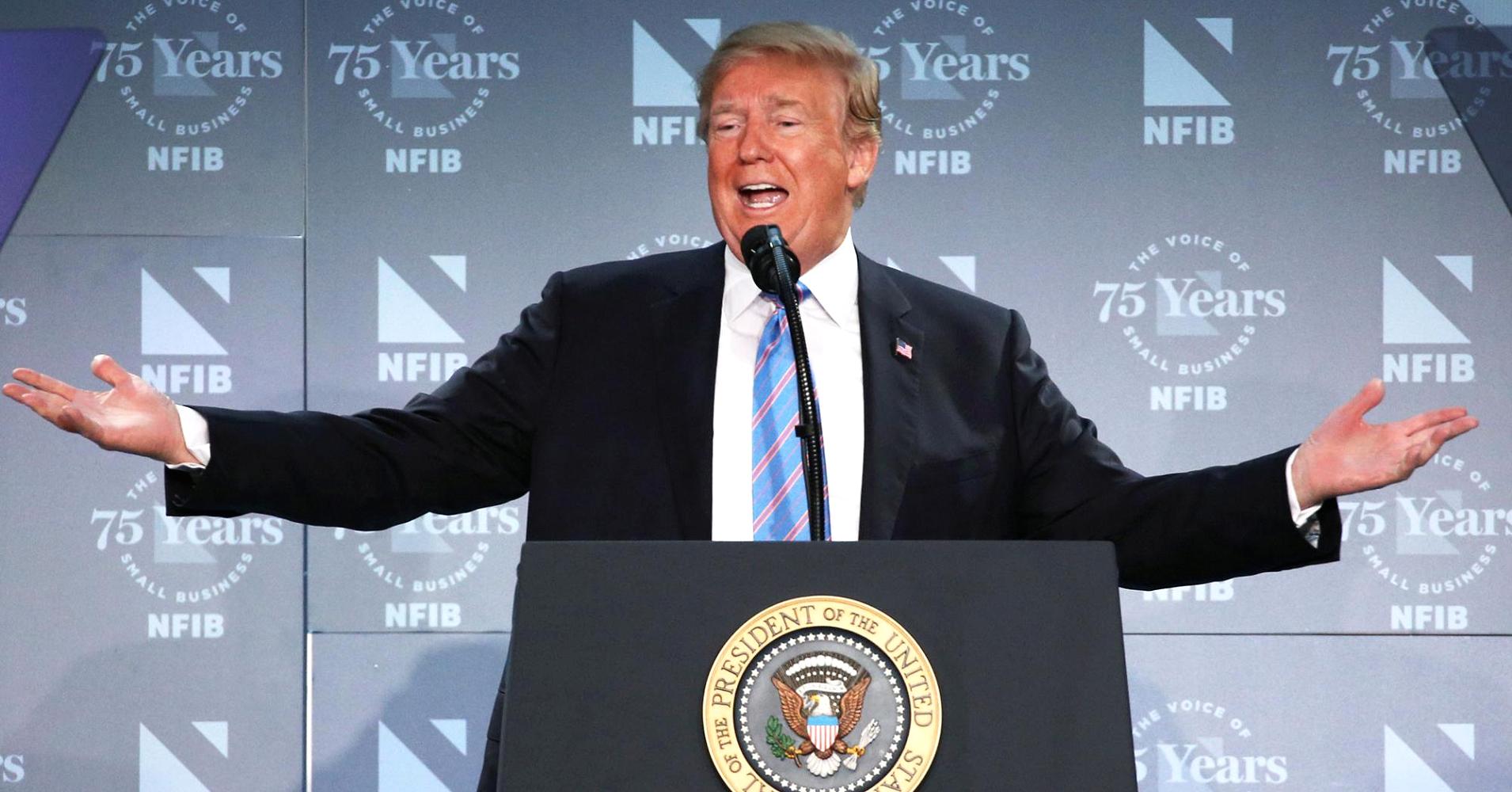
President Donald Trump questioned Tuesday whether he would back two House Republican immigration bills, casting new doubts about whether the chamber can pass them in an expected vote this week.
The president heads to Capitol Hill on Tuesday night to discuss the legislation with GOP lawmakers. Trump, who has set out specific and sometimes shifting goals for immigration legislation, said he plans to review the measures and then “make changes.”
“We have a House that’s getting ready to finalize an immigration package that they’re going to brief me on later and that I’m going to make changes to,” the president said at an event for small business association the National Federation of Independent Business. “We have one chance to get it right. We might as well get it right or let’s just keep it going.”
Only on Friday, the White House said Trump would sign either bill — one which came about as a compromise between centrist and conservative Republicans, and another that captures the demands of the party’s right flank. Leaders of the majority Republicans for now thwarted an effort by moderates to potentially force a vote on bipartisan immigration measures.
The president’s comments Tuesday raise questions about what changes he would seek and whether the House could pass a bill that he supports.
Trump’s remarks likely do not help him get closer to his goal of Congress passing a bill that funds his proposed border wall, limits legal immigration and ends the White House policy of separating migrant children from parents at U.S. borders. As Trump faces a massive, bipartisan uproar over his administration’s practice, he spent much of his NFIB speech venting about immigration.
The Trump administration’s “zero tolerance” policy prosecutes all adults illegally crossing U.S. borders to deter attempts to enter. That has resulted in more children split from their parents. Activists, bipartisan politicians and religious groups have urged the White House to halt the practice as images of crying children and kids sleeping within cage-like metal structures have circulated in recent days.
Trump on Tuesday claimed that he only has “two options — totally open borders, or criminal prosecution for lawbreaking.” However, his predecessors did not criminally prosecute all people entering the U.S. illegally.
The Trump administration has sent mixed messages over its intentions with the practice — and whether it considers it a “policy” at all. Homeland Security Secretary Kirstjen Nielsen has denied that splitting up families is a policy. However, White House advisor Stephen Miller has described the practice that way, and says it aims to discourage adults from crossing U.S. borders.
Trump again confused the administration’s messaging, saying, “You have to take the children away” if you prosecute adults.
“We want to solve family separation. I don’t want children taken away from their parents,” he said. “And when you prosecute the parents for coming in illegally which should happen, you have to take the children away. Now you don’t have to prosecute them but then were not prosecuting them for coming in illegally. That’s not good.”
Trump and his advisors have wrongly claimed that only Congress can end the family separation policy. Numerous lawmakers, including Republicans, have noted that Trump can halt it immediately if he chooses.
Still, various proposals to end the practice are working their way through Congress. It is unclear whether lawmakers can coalesce around any one of them. Immigration has long been a difficult and politically divisive issue.
Republicans hope to add language ending family separation to the immigration bills they will consider this week. It is unclear whether the legislation will accomplish that goal.
The compromise House GOP immigration measure would meet most of Trump’s immigration demands. It would create a path to legal residency and then citizenship for young immigrants brought to the U.S. illegally as children. It would also fund the president’s proposed border wall and end the diversity visa “lottery” system.
The second bill is more conservative and does not offer a path to citizenship for the immigrants, known as “Dreamers.” It would more dramatically limit legal immigration.
Trump also slammed proposals for more immigration judges to speed up proceedings for people detained in the U.S. A bill to end family separation proposed by Sen. Ted Cruz, R-Texas, would nearly double immigration judges.

